Alexey Isaev. Whether commanded A.A. Vlasov 20 Army in December 1941 g?
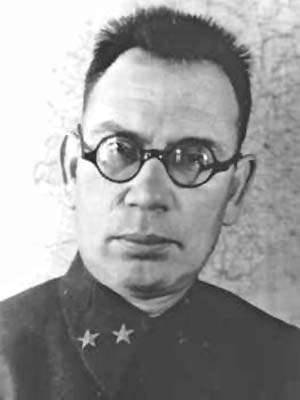 The transition of A. Vlasov, commander of the 2 shock army, to the service of the Germans, was certainly one of the most unpleasant episodes of war for our country. There were other officers of the Red Army who became traitors, but Vlasov was the most senior and most famous.
The transition of A. Vlasov, commander of the 2 shock army, to the service of the Germans, was certainly one of the most unpleasant episodes of war for our country. There were other officers of the Red Army who became traitors, but Vlasov was the most senior and most famous.To say that the memoirs of Vlasov’s colleagues who wrote after the war were embarrassed was not to say anything. You will write about the former commander, they will say well "How could you not see such a reptile?" If you write badly, they will say: “Why didn't you hit the bells? Why did not he report and report to where? ”
In the simplest case, they simply preferred not to give the name of Vlasov. For example, one of the officers of the 32nd tank the division of the 4th mechanized corps describes his meeting with him as follows: “Having leaned out of the cockpit, he noticed that the regiment commander was talking with a tall general with glasses. I recognized him right away. This is the commander of our 4th mechanized corps. I went up to them, introduced myself to the commander ”(Egorov AV With faith in victory (Notes of the commander of a tank regiment). M.: Military Publishing, 1974, p.16). The surname "Vlasov" throughout the whole story of the fighting in Ukraine in June 1941 is not mentioned at all. In the case of the 4th mechanized corps, the taboo placed on the name of the traitor general played rather in the hand of Soviet historiography. In the 4th mechanized corps, by the beginning of the war 52 KV and 180 T-34s had been assembled, and explaining where they had gone amid the tales of their “invulnerability” was not easy.
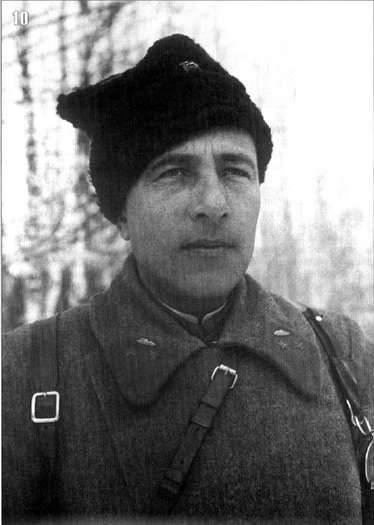
However, even if Katukov wrote about this visit of Vlasov, then the mention hardly corresponded to the real impression of December 1941. If the name “Vlasov” was mentioned in the memoirs, it is rather with a minus sign. For example, cavalryman Stuchenko writes:
“Unexpectedly, in three hundred and four hundred meters from the front line, the figure of the commander of the Vlasov army grows up from behind a bush in an astrakhan gray cap with earflaps and a constant pince-nez; rear adjutant with a gun. My annoyance overflowed:
- What are you doing here? There is nothing to watch here. Here people are dying in vain. Is it so organized fight? Is it the use of cavalry?
It was thought: now he will be dismissed. But Vlasov, feeling unimportant under fire, asked in an unsure voice:
“Well, how do you think it is necessary to advance?” (A. Stuchenko. Our enviable fate. M .: Voenizdat, 1968, C.136-137).
Meretskov spoke in a similar vein, retelling the words of General Afanasyev, chief of communications of the 2 shock army,: “It is characteristic that Vlasov did not take any part in discussing the planned actions of the group of commander-2. He was completely indifferent to all changes in the movement of the group ”(Meretskov KA In the service of the people. M .: Politizdat, 1968, C.296). To believe or not to believe such an image is a personal matter of the reader. Perhaps, by the way, it was Afanasyev who witnessed the fracture of Vlasov’s personality, which led to betrayal. The commander of the 2 shock was captured literally several days after the “discussion of the planned actions”. So this description may be relatively accurate and objective.
Against this background, when Vlasov was either not mentioned at all, or was explicitly mentioned with a minus sign, something had to be done with the period when he commanded the 20 army. This army was advancing quite successfully, and in an important direction. If Katukov could have kept silent on the pages of his memoirs, in more general descriptions, it was already impossible to ignore the role of the 20 army and its commander. Therefore, a version was put forward that Vlasov, being formally the commander of the army, did not take a real part in the hostilities due to illness.
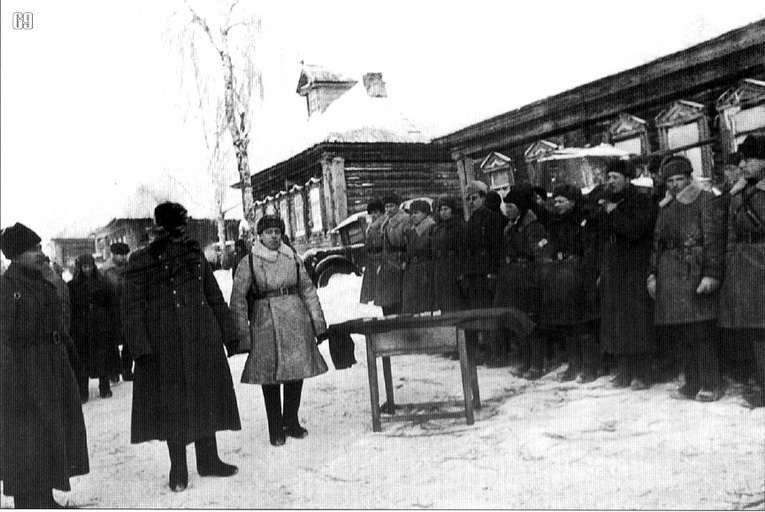
Actually, the first version that A.A. Vlasov was ill and did not command the 20 army during the December counteroffensive of the Soviet troops near Moscow, was voiced by LM Sandalov. He himself at that time was the chief of staff of the 20 Army. In the collection of articles and memoirs, published for the anniversary of the Moscow Battle, Sandalov wrote:
“- And who is appointed commander of the army? - I asked.
“One of the commanders of the South-Western Front, recently released from the encirclement, General Vlasov,” answered Shaposhnikov. - But keep in mind that he is now sick. In the near future you will have to do without it. You do not have time to go to the front headquarters. In addition, I have a fear that the troops of your army may distribute to the new task forces. The commanders of these groups have no headquarters, no communications to control the battle, no rear. As a result, such improvised task forces after a few days stay in battles become incapable.
“It was not necessary to dismantle hull controls,” I said.
“My parting words to you are,” Shaposhnikov interrupted me, “to quickly form an army command and deploy an army.” Not a step back and prepare for an offensive ”(Battle for Moscow. Moscow: Moscow Worker, 1966).
Accordingly, the appearance of A. A. Vlasov Sandalov dates 19 in December: “At noon on December 19, an army command center began to unfold in the village of Chismen. When I and a member of the Military Council Kulikov specified the position of the troops at the communications center, the adjutant of the army commander came in and reported to us about his arrival. Through the window one could see how a tall general with dark glasses came out of a car stopped at a house. He was wearing a fur bekesha with a raised collar. It was General Vlasov ”(ibid.). One cannot get rid of the thought that this description reveals the grim future of the “man in bekesh” - dark glasses, a raised collar.
The former chief of staff of the 20 Army did not stop at this and shifted the time for the commanders to transfer to the “man in bekashe” on December 20 of 21 in 1941 of Mr .: He repeated his questions several times, referring to the fact that he had trouble hearing his ears due to a disease of his ears. Then, with a gloomy look, he grunted to us that he was feeling better and would take control of the army completely in a day or two. ”
If you call a spade a spade, then Vlasov, in the memoirs of his chief of staff, takes up his duties at the time of stabilization of the front. The greatest achievements were left behind, and the stubborn and slow gnawing of the German front began near Volokolamsk and on the Lama River.
The practice of silence has become a system. In 1967, the book “Moscow Battle in Figures” in the “Index of commanders of fronts, armies and corps participating in the Battle of Moscow” was named Major-General A.I. Lizyukov instead of Vlasov as commander of the 20 army. There is a double mistake here: by the beginning of the battle, A.I. Lizyukov was a colonel and received a major general only in January 1942 of Mr. Sandalov in this regard, as a person well acquainted with the realities of war, more consistent. Lizyukov is mentioned in his memoirs by a colonel and is the commander of the task force. A colonel as army commander is absurd even by the standards of 1941.
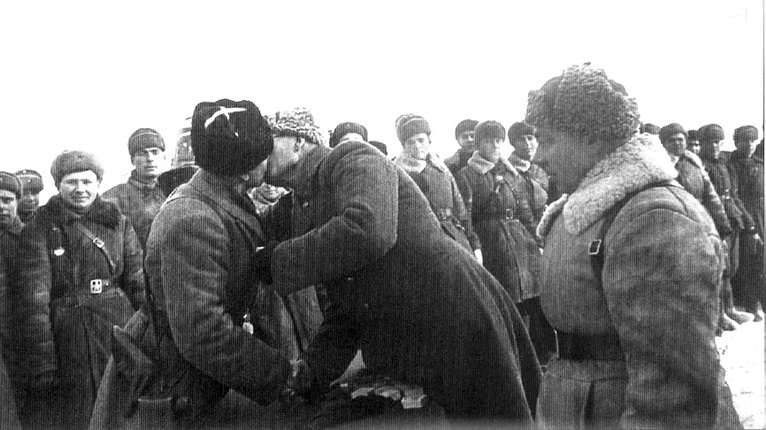
Nowadays, an article in the Military Historical Journal (2002. No. 12 .; 2003. No. 1) devoted to LM Sandalov outlined his version regarding the time frame for the absence of A. A. Vlasov. The authors of the article, the generals V.N. Maganov V.T. Iminov, made Sandalov a man who actually performed the duties of the army commander. They wrote: “Lieutenant-General A.A. Vlasov, appointed by the army commander, was ill and was in Moscow until December 19, therefore the whole burden of work on the formation of the army, and later on managing its military operations fell on the shoulders of the chief of staff L.M. .Sandalova ".
However, if in 1960-s, when access to the documents of the Second World War was practically closed for independent researchers, it was possible to write about the sick ears and the arrival at the December 19 command post, this is not convincing nowadays. Each army commander left a mark in the form of a host of orders with his signature, which can track the periods of active command and the date of entry into office.
In the 20 Army Fund in the TsAMO RF, the author managed to find only one among the orders, signed by A. I. Lizyukov. It is dated November 1941 and Lizyukov is designated in it as the commander of the task force. After that, December orders are issued, in which Major-General A. A. Vlasov is called as commander of the army.
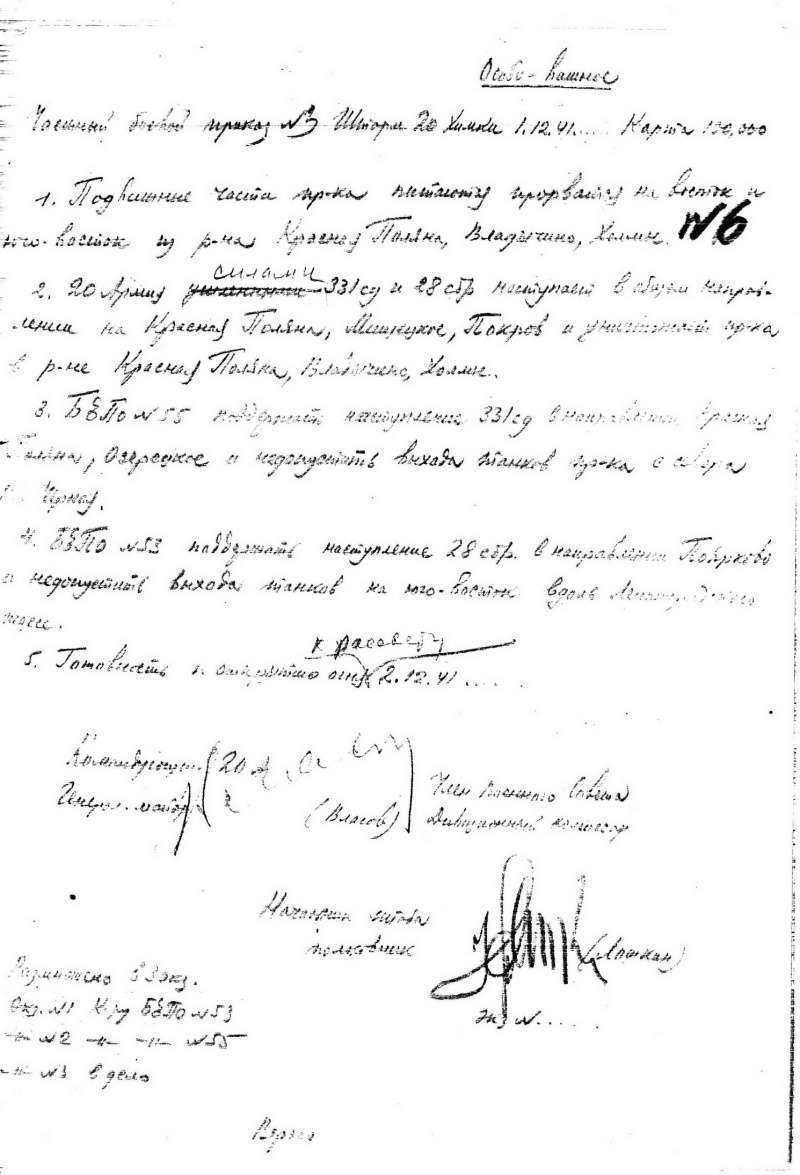
The most amazing thing is that one of the first combat orders of the 20 Army was not signed by Sandalov. As the chief of staff appears a certain Colonel Loshkan. The surname "Sandal" appears on orders starting from 3 December 1941. True, with the advent of Sandalov, army orders begin to be typed.
As we see, there are two signatures on the document - the army commander and his chief of staff. The signature of a member of the Military Council appears a little later. A situation similar to some orders of the 4 Army of the summer of 1941, when orders were signed by one chief of staff, is not observed. Then, despite the presence of the commander (General Korobkov), part of the orders remained only with the signature of Sandalov. Here we have a situation that is strikingly different from that described in the memoirs. “The man in bekashe” was not a guest, but a host at the headquarters of the 20 Army at the time of the arrival of L. M. Sandalov.
Maybe A.A. Vlasov was listed as the commander of the 20 th army, and the signature on the orders put a completely different person? For comparison, we take a document that was signed by Vlasov - the report of the 4 mechanized corps to the commander of the 6 army (July 1941).
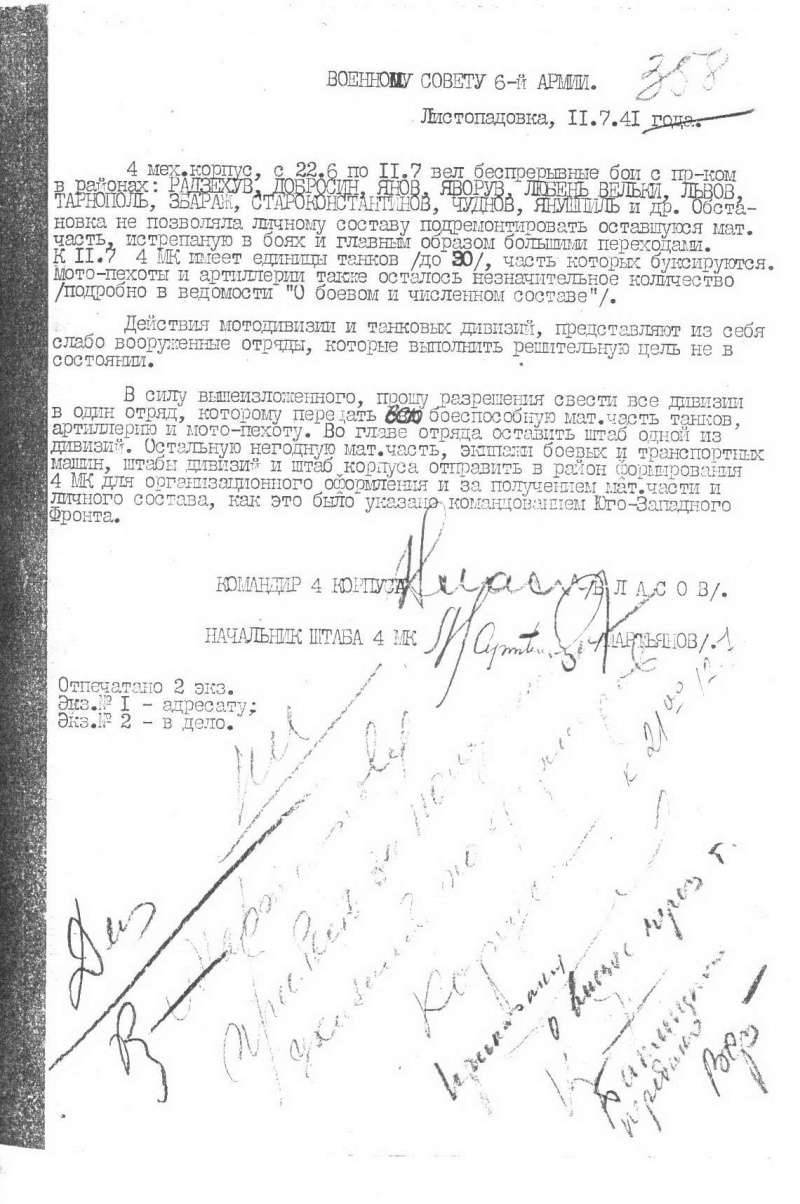
If you take the signature of the commander of the 4-th mechanized corps and the signature taken at random on the order of the 20-th army and use the graphic editor to put them together, we will see that they are similar:
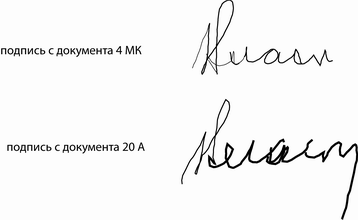
The characteristic features of the two signatures are visible to the naked eye: the beginning of painting, similar to “H”, clearly visible “l” and “a”. It can be concluded that A. A. Vlasov signed the orders of the 20 Army starting at least with 1 December 1941. If he was sick during this period, he did not leave the headquarters for a long time. The style of orders is about the same, corresponding to the then accepted norms and rules for writing orders. First, information about the enemy is given, then the position of the neighbors, then the task of the army troops. A characteristic feature of 20 A orders, several distinguishing them from similar documents of other armies, is the entry of the start time of the attack already in the finished document.
Attempts to strike out stories A.A. Vlasov’s war activities as a com-commander and commander-in-chief are explainable, but useless. Especially in the current environment. At the end of 1941 and at the beginning of 1942, Andrei Andreevich Vlasov was in good standing. This is a historical fact. Suffice to say that following the results of the offensive near Moscow, A. A. Vlasov, G. K. Zhukov, was given the following description: “Lieutenant-General Vlasov commanded the troops of the 20 Army from November 20 1941. He supervised the operations of the 20 Army: a counterstrike on the city of Solnechnogorsk, an army offensive on the Volokolamsk direction and a breakthrough of the defensive line on the Lama River. All the tasks assigned to the army, comrade. Vlasov performed in good faith. Personally, Lieutenant-General Vlasov is operational well prepared, has organizational skills. With the control of the army troops - copes quite. The positions of the commander of the army are quite consistent. ” As we can see, Zhukov directly indicates that in the first half of December 1941, the leadership of the 20 army was carried out by Vlasov. The fighting under Solnechnogorsk and the outbreak of the fighting near Volokolamsk took place at this very time.
The history of the Soviet general A. A. Vlasov, which led him to the well-deserved scaffold, remains one of the mysteries of the Second World War. The author of the open letter “Why I took the path of struggle against Bolshevism” was for a long time quite an ordinary, not particularly distinguished person. Attempts to simply expunge his activity from the history of the war more likely prevented the clarification of the causes of the fracture that General Vlasov had broken with such a crash.
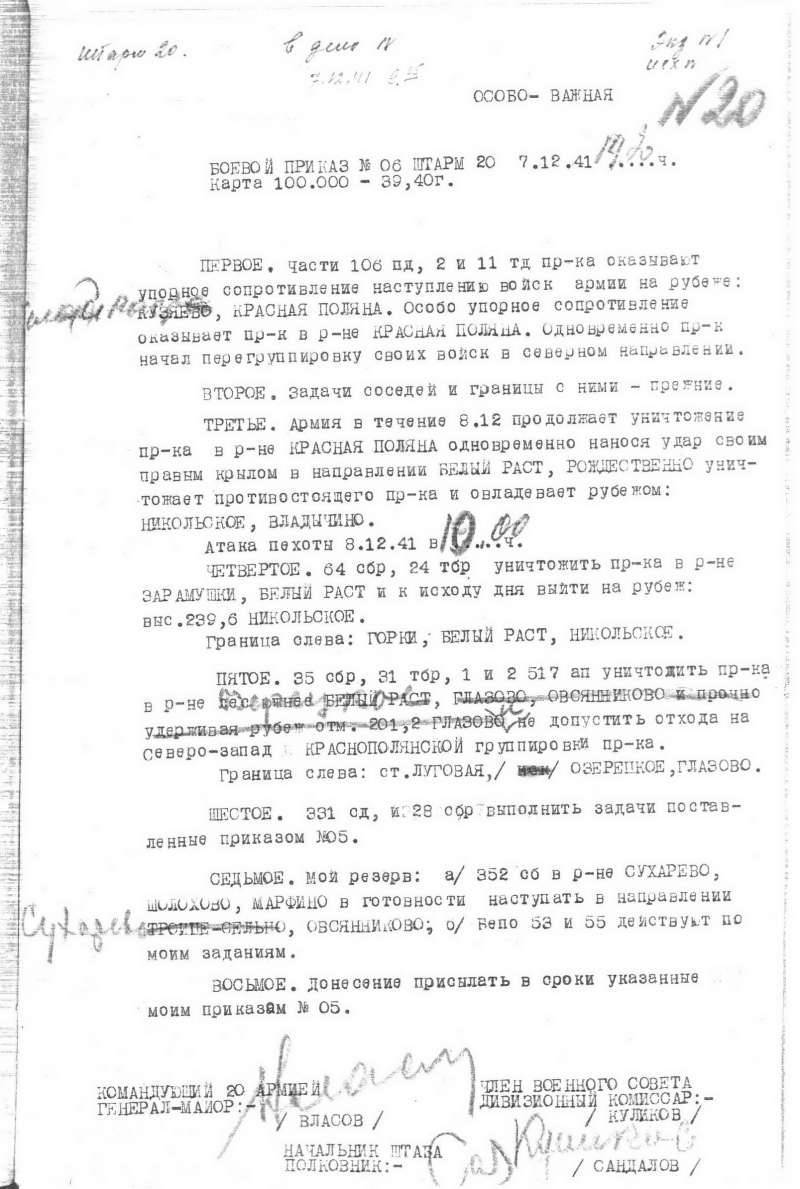
Information